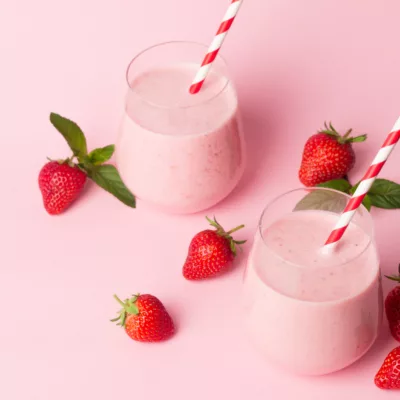The ongoing pandemic is causing anxiety and higher stress levels, leading to widespread sleeping pattern complications. As such, sleep health is on the minds of many people right now.
According to Mintel research, 68% of young consumers in the UK have struggled to sleep since the start of the pandemic. Similarly, around 70% of consumers in the US under the age of 55 have reported sleep problems. In line with this, there has been significant growth in the uptake of sleep health-focused products (US), but there is still room to innovate in this area. Consumers of all demographics are looking for food, drinks and supplements that address their desire for better sleep health.
In this article, we’ll look at the rise of ‘Covid-somnia’, factors affecting sleep health, the importance of good quality sleep and finally, at how brands can formulate products to support consumers in this important space.
What is Covid-somnia?
‘Covid-somnia’, also referred to as Coronasomnia, is a term used by sleep experts to describe sleep problems caused by stress, anxiety and depression related to the pandemic. Sleep problems can be triggered by a variety of factors:
- economic hardship
- loneliness
- loss of routine
- parenting challenges
- increased media consumption, and more
Many of these factors have been prevalent for people during the pandemic.
An increase in sleep issues, particularly insomnia, has been recorded globally over the past couple of years. Internationally, there has been a trend toward going to bed later, delays in falling asleep, poorer sleep quality, increased daytime napping and lower total sleep times. These changes are more common in younger people, women, those with mental illnesses, unpaid carers, front-line workers and unemployed individuals.
Why is Sleep Health So Important?
Getting enough good quality sleep is essential for our health and well-being, which is what makes ‘Covid-somnia’ so concerning. Good quality sleep of course rests and restores us, but it also helps to repair tissues, keep heart and blood vessels healthy, strengthen the immune system, regulate appetite, consolidate new learnings and lay down memories.
The average adult needs roughly 7 to 9 hours of sleep per night, but this number can vary significantly between individuals. Not getting enough quality sleep can have an almost immediate effect on our mood, energy levels and ability to focus. It can also disrupt stress hormones, causing increased stress, irritation, anxiety and difficulties in dealing with routine problems. Over the long term, poor-quality sleep can increase the risk of high blood pressure, heart disease, obesity, and diabetes and compromise healthy immune function. Clearly, it’s vital to be getting good quality sleep – and yet an increasing number of us are not managing to do so.

How Does What We Eat and Drink Impact Sleep?
What we consume directly impacts the quantity and quality of sleep that we have. For example, things that contain caffeine such as tea, coffee and chocolate can disrupt sleep and reduce sleep quality. Other dietary factors can also cause poor sleep quality:
- A diet high in refined carbohydrates and sugar
- A diet high in saturated fatty acids
- Very low or high protein intake
- Alcohol consumption
- Irregular eating patterns
On the other hand, certain dietary choices can also help to enhance sleep quality:
- A Mediterranean diet
- A diet rich in complex carbohydrates, omega-3 fatty acids and quality proteins that are rich in tryptophan
- A diet rich in B Vitamins, Zinc, Vitamin D and Magnesium
Formulating and Taking Sleep Health Products to Market
As well as following a healthy and balanced diet, there are also specific supplements and functional foods targeted at helping consumers achieve better sleep. These are in higher demand than ever due to the widespread sleep problems reported during the pandemic. Additionally, many consumers feel that ‘traditional’ sleep aids such as sleeping pills are not healthy. As such, there is a great opportunity for food, drink and health brands to support consumers with sleep-focused products.
When formulating functional sleep products, you want to add ingredients that support label claims, while also delivering a recognisable sleep-promoting benefit to the consumer. The ingredients listed in the table below are commonly found in products that support better sleep quality.
| Herbs | Chamomile, Hops, Passionflower, Valerian, Lemon balm, Lavender, Ashwagandha, St John’s wort, Skullcap, California poppy, Oat straw, Kava, Saffron, Chinese date, polyphenols from Green Tea and Spearmint. |
| Amino Acids | L- Glycine, L-Theanine, L-Tryptophan |
| Minerals | Magnesium, Zinc |
| Vitamins | D3, C |
| Nutraceutical | Palmitoylethanolamide (PEA), Lutein and Zeaxanthin |
| Dairy Derivatives | Alpha-lactalbumin whey protein |
| Prebiotics | GOS |
| Essential Oils | Diffusers, Steam Inhalations, Sprays – Chamomile, Lavender, Cedarwood, Bergamot, Ylang-Ylang, Sandalwood, Valerian, Clary Sage, Jasmine. |
Often these ingredients are used not only for their sleep-promoting functionality but also for their ability to help relax the nervous system, support the body to cope with stress or promote mental wellbeing.
However, while these ingredients have wonderful benefits, some ingredients, such as valerian or hops, can also impart unpleasant flavours or odours. The careful combining of herbal ingredients to achieve synergy between components can allow for reduced dosages of each component – which is one way to help combat unwanted flavours and odours of some herbal materials.
And of course, before taking any sleep health products to market you will need to ensure that you are complying with the relevant FSANZ or TGA regulations.
What we consume directly impacts the quantity and quality of sleep that we have. For example, things that contain caffeine such as tea, coffee and chocolate can disrupt sleep and reduce sleep quality. Other dietary factors can also cause poor sleep quality:
- A diet high in refined carbohydrates and sugar
- A diet high in saturated fatty acids
- Very low or high protein intake
- Alcohol consumption
- Irregular eating patterns
On the other hand, certain dietary choices can also help to enhance sleep quality:
- A Mediterranean diet
- A diet rich in complex carbohydrates, omega-3 fatty acids and quality proteins that are rich in tryptophan
- A diet rich in B Vitamins, Zinc, Vitamin D and Magnesium
There is a great opportunity for food, drink and health brands to support consumers with sleep-focused products.
How Can We Help?
Creating sleep health products is undoubtedly a highly complex undertaking. Luckily, Hawkins Watts has a highly experienced team with deep knowledge in the proactive health space. We have a portfolio of quality ingredients and can work closely with you to determine the best ingredients to use in your formulation. With our purpose-built labs, we can even work directly on your project to help you find the best solutions and ensure a top-performing product.
Get in touch with our resident expert, Michael Evans, to chat more about this exciting area.
Michael Evans – michael@hawkinswatts.com.au
Sources
Mintel, New strategies for stress, mood and anxiety, 2022.
https://www.spins.com/resources-nga-show-recap-innovative-wellness-trends/
Mintel, Nutrition Watch APAC Sleep Health, 2021 and 2022.
Mintel, Trends in Vitamins, Minerals and Supplements US, 2021.




